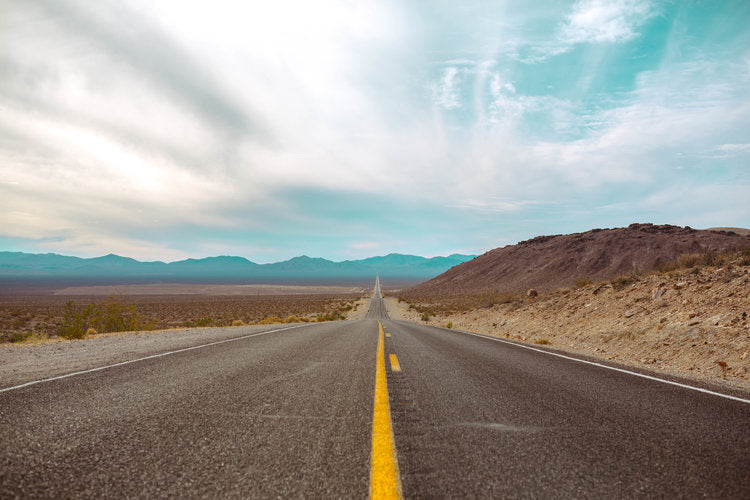
As you read this, you may be traveling to your parents’ house 4 hours away, in a car filled with children who are full of angst, ready for their next bathroom break. Happy Fourth of July!
... Or perhaps you have had a wonderful time celebrating the freedom that America has supplied you with, but you also feel absolutely wiped. And I’m not talking about too many beers and 5-hot-dogs later wiped. I’m talking in bed, lights out at 7 PM, the kind of wiped that makes you want to rest for the weekend wiped.
Does this sound like you?
If it does, I’m sorry. But I am also happy that you’re reading this blog post today!
Traveling & Chronic Illness Are Frenemies.
On one hand, traveling helps to break up your routine, offers the ability to change your everyday habits, and creates new experiences fueled with emotion. On the other hand... did I remember to bring my GF DF snacks? How will I feel when this plane takes off? What will they think about me if I don’t go to dinner with them? Traveling can have an amplified effect on the nervous system. In addition, accessing the prefrontal cortex becomes a priority in making important & decisive decisions while on the road. Hyper-vigilance is intensified due to operating in new & unfamiliar territories. Throw on chronic symptoms to this mix, and you can feel intimidated by the whole ordeal.
But let’s take a step back for a second and look at the full picture.
When you have a new experience, you are creating new neural pathways in your brain. Why is this a good thing? Because after dealing with months or maybe years of chronic illness, it gets the brain (and body) out of the same habit loop of waking up (feeling sick), eating lunch (feeling sick), and going to bed (feeling sick). Charles Duhigg, the author of The Power of Habit says that when you are on vacation, you’re organically breaking the cycle of your everyday routine by changing the cues and the rewards systems that enable your routine. This is why when you go on vacation, you can more easily break that nagging habit of smoking a cigarette every day after dinner. You are changing the cues and the rewards just by being in a new environment, which breaks the habit cycle for you. And when you operate in this new place, you begin to think about things differently, create new routines, and can even break your constant cycle of stress. Amazing!
But what about the anxiety, the pain, the feelings of discomfort, the waxing and waning of symptoms, or a possible embarrassment that may occur when traveling to a new place?
Let’s learn some techniques that make traveling a fraction easier if you’re operating in this realm^.
1. Ask yourself, “What can I control?” Sometimes (most times), you cannot control the environment around you. If you are in a crowded space or surrounded by people who may make you feel less than, ask yourself, “What can I control?” You can control some physiological functions like breathing. Take a deep breath in until you can’t inhale any longer, then take a deep breath out until you feel the need to exhale. Use this breath over and over again, without forcing, to regain control over your central nervous system. It’s always important to find the things you can control in what seems like an uncontrollable environment. Breathing is an ideal go-to technique for those times where things just seem out of control, and you’re wanting an inconspicuous technique to calm your fears and anxieties.
2. Prepare with your golden nuggets. I like to think of golden nuggets as wonderful little resources that provide you (& only you because this differs for everyone) with strength and motivation. One nugget that I personally love is the Morning Vital-Side Meditation. What I love about this golden nugget, is that during travel, you can pop your earbuds in and listen to this 30-minute meditation rather than focus on your acute symptoms. You can then focus on the things that make you feel good, which is empowering and gives your symptoms less power. You can do this anytime throughout the day, and no one will even know you’re listening! Pull this out on a plane, train, or automobile and you are practicing brain training at its finest.
3. Practice self-love. Yes, the hot topic trending right now is self-care. Sometimes that takes the form of a jade roller, collagen powder, or that new eucalyptus spray that is meant to heal all past traumas. I am not here to promote any one of those but instead to tell you the most important way you can practice self-care is through practicing self-love. During this time of travel, things can go wrong. Mistakes happen, and you may find yourself waiting for your checked bag for days after arriving at the Minneapolis airport. So what is it that you can tell yourself in the moment? Phrases like, “I am a beautiful human, “ I am doing my best,” and “I love you” can be extremely helpful in this situation. Really! Pay attention to your self-talk to show yourself self-love. Next time you have a less than desirable experience, note: do you blame yourself or do you practice compassion to help your day feel a little brighter? Set reminders on your phone with the phrase “self-love” to remind yourself periodically that this is a priority in your life & especially while on the road. It’s also helpful to remember to put your priorities first. This means saying no to that third round of cocktails or heading to bed early after a night out to dinner if that’s what feels good for you. This may feel uncomfortable at first, but when you start having that inner conversation about what truly works for you and what is necessary to help you thrive, you start becoming your own friend. And that’s kind of a nice feeling.
Many of my clients have seen the greatest improvements while on vacation. No joke! This should give you hope that the brain does change and is affected by your environment, your self-talk, what you do, and the thoughts that you have. Let’s use this natural ability for good rather than for evil. And by that I mean, let’s truly enjoy our vacation time with ourselves and the people around us without letting our symptoms control each and every day. Let’s get back to basics and put yourself in control of your life again.
And in the meantime, Happy Healing!
Lindsay

